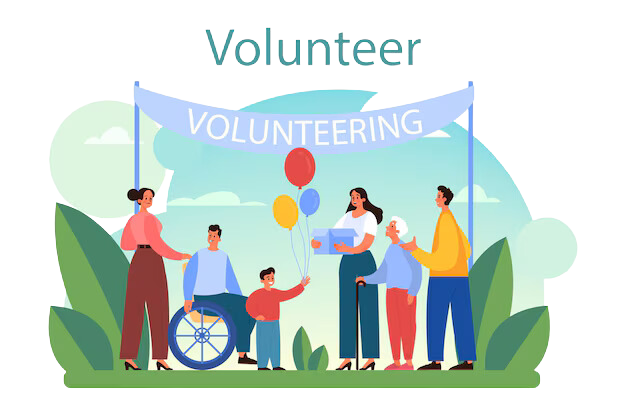Spiritual Connection with Others
- jessicaaqian
- Nov 6, 2024
- 8 min read
What is Spiritual Connection?
Why is it important?

In our modern, fast paced lives, concept like spirituality can seem to have no bearings, but occasionally, it can transform our lives for the better, spiritual connection can be seen as a personal connection to one's spiritual belief and religion (Algahtani et al., 2022).
Spirituality is the sacredness in one's life, a transcendent force that at times replace one's worries with a sense of clam and confidence, and at other times helps one to fight battles bravely and with dignity. According to Wills (2007), spiritually is an active, ongoing process that empowers one to cope in daily life and to heal. Spirituality and using religion to cope positively can contribute to one's mental heath (Hill & Pargament, 2008) and has been shown to help reduce psychological distress in survivors of interpersonal trauma (Bryant-Davis & Wong, 2013).
Spiritual Intimacy Among Partners
Marriage, as we know, is not always smooth sailing and comes with its unique challenges having a spiritual connection in the context of romantic relationships, marriage and parenthood can contribute to better intimacy skills between partners, something which plays a big role in increasing martial satisfaction.
Examples of having god intimacy skills are the ability to open up about one's emotional distress to their partner, and to give and receive support during the discussion of sensitive topics.
Spiritual Intimacy Among Parents
When moving into the tricky, exhausting stage of parenthood, most couples will experience potential strong, negative emotions in response to fatigue and completely new situations to adapt to (Ryan & Padilla, 2019). Padgett, Pargament, and Demaris (2019) describe two spiritual process that can encourage spouse to exercise intimacy skills when transitioning into parenthood.
The first process to sanctify one's marriage - to view one's marriage as having divine qualities, such as being linked to a divine power.
The second process to practice spiritual intimacy, which is to engage in spiritual disclosure and support one another during such conversations. An example of spiritual disclosure is sharing an experience or belief that may not be ontologically "true", but stems from one's deeply held concern and desires (Kusner et al., 2014)
Both of these methods can help couple to improve their emotional intimacy, ultimately leading to higher level of satisfaction with their marriage.
Spiritual Connection in the community
Religion
Spirituality in religion can help people cope with distressing events, either through deriving support from a divine power or by approaching members from their religion.
People who do so tend to have lower depressive symptoms, greater self- esteem, and greater overall life satisfaction (Good & Willoughby, 2008).
Although religious communities can often be viewed as a source of stigmatisation towards the LGBTQ community, Rotosky and colleagues (2017) found that LGBTQ parents can use their religious and spiritual identities to support their children’s religious and spiritual development.
LGBTQ individuals also use their spiritual and religious beliefs to cultivate authenticity in their family relations and forgive people who have discriminated against their LGBTQ identity, therefore practising compassion and empathy to gain meaning in their lives (Rosenkrantz et al., in press).
Therefore, spiritual connections can not only improve the well-being of individuals, but also have the potential to benefit members of marginalised communities when they and others around them use their religion and spirituality constructively.
Spiritual Connection and Psychological Well-Being
Spiritual connection in our day-to- day lives is also very important. To explain it with a context we are all familiar with: During the lockdown period of the COVID-19 pandemic, while we were all cooped up at home and struggling to adapt to studying or working remotely and seeing our friends and colleagues less frequently, some of us might have felt lost and frustrated by the doom and gloom surrounding the media; people who reconnected with their spiritual beliefs and religious practices during that time were found to have reduced anxiety and stress symptoms (Algahtani et al., 2022).
What does it mean to spiritually reconnect with yourself? It can be as simple as taking a walk or affirming to yourself all the hard work you have completed that day. It can be something like making sure to practise gratitude everyday by completing a certain act of kindness towards yourself or towards another person. Spirituality is something very innate and personal, and it can reveal a lot about what we truly value and prioritise in life. What is your definition of what it means to be spiritually connected?
How do I connect with People Spiritually?
Types of Spirituality with Others
Service Spirituality
Service spirituality is one of the most prevalent forms of spirituality. It can be described as finding spiritual serenity through assisting others.
The fundamental principle of service spirituality is giving without expecting anything in return.
One way to practise service spirituality is by performing small acts of kindness towards others.
Social Spirituality
Social spirituality can be described as having a spiritual awakening while surrounded by others.
Practising being in social situations can help one gain more meaningful spiritual purpose in life.
One method to experience this spirituality is by participating in religious gatherings and activities. However, one can also cultivate their social spirituality through other means, such as doing exercise, meditation, and outdoor pursuits with friends or an interest group.

Connecting with Family Spiritually
1. Setting Life Goals With Your Family To Achieve Common Ideals Of Well-Being
How to set life goals with your family?
Repeat ideas, summarise, and write them down.
Follow the SMART plan : Identify Specific, Measurable, and Attainable goals with clear Results, breaking those goals into smaller steps, and setting a specific Time frame to achieve them.
Anticipate obstacles but stay positive: Think about the possible challenges that could get in the way of achieving your family goals and have a backup plan ready for such scenarios if and when they happen.
Make a visible reminder of your family goal. This could be on the family calendar, a poster or a print-out.
Revisit the plan regularly with your family and celebrate the progress you have made together, even the seemingly insignificant ones.
Benefits of setting goals with Family
Developing closer connections with them
Having a support system that can challenge and motivate you to strive towards reaching your ideal level of well-being
2. Forming Communities with Similar Values and Interest
How to you find such communities?
Prioritise your values and interests
Figure out what your values and interests are, or something that you would like to learn, and seek out places that can enable you to pursue them.
Make your involvement in a community a habit
Consistency is key. Turn up regularly and try to contribute to the group if you want to establish a genuine connection. Mark down upcoming meetings on your schedule right away, and make it a point to show up.
Meeting and interacting with the same people regularly establishes familiarity and enables you to connect with the community and with individuals you encounter in your day-to-day life.
Invest your energy into others
Communities are formed by numerous individuals with diverse viewpoints and life experiences. Being an active member entails frequently connecting with other members of the community. However, do not always anticipate rapid assistance from other members, requests for favours, or even conversation from them. Forging connections and integrating into a community takes time and effort
Why is it Important?
We are social beings and rely on our relationships with others not only to survive, but to thrive. Having a variety of connections is crucial, from immediate family and close friends, to others outside of one’s social circle. However, we shouldn’t also rely on only one person to satisfy all of our emotional and psychological needs; thriving increases when there are many individuals around us who can meet our diverse emotional needs (Sandstrom, as cited in Volpe, 2022).
But Don't Exhaust Yourself!
You don't have to join numerous communities in order to find one where you have a spiritual connection. Be mindful of your own time and energy before joining any community event and avoid stretching yourself beyond your limit.
3. By Having More Empathy Towards Others
What is Empathy? (Cherry, 2022)
Empathy is the capacity to understand or feel what experiencing from within another person is their frame of reference, place oneself in another's that is, the capacity to position.
Types of Empathy
Affective Empathy
Understanding another person's feelings and reacting Understanding another accordingly. Such emotional someone feel concerned for the comprehension could make welfare of another person or it might make them feel distressed personally.
Somatic Empathy
Having a physical response to People can sometimes mirror a another person's experience. emotion someone else is having; physical response to an for instance, you might start blushing or feel queasy when you witness someone else blushing.
Cognitive Empathy
Understanding another individual's psychological state and potential thoughts in reaction to the scenario. This is and potential thoughts in associated with the theory of thinking about what other mind, sometimes known as people are thinking.

Why is Empathy Important? (Hogan, n.d.).
Connection
You can establish social ties with other people through empathising with them. You can react effectively in social situations if you are aware of others' thoughts and emotions. Social relationships are critical for both physiological and psychological well-being.
Helpfulness
When you have empathy, not only are you more inclined to act in a helpful manner, but others are also more likely to support you.
Managing emotions
Emotional control is crucial because it enables you to stay calm under stress without being overwhelmed.
How to become a more empathic person? (Cain Miller, 2019).
Interact with People having Different Lifestyles
Invite a coworker or neighbour you don't know very well to lunch. You can start by asking them general questions about themselves and how their day is going.
Follow social media accounts that showcase different lifestyles, ethnicities, or religious and political beliefs from you.
Look out for similarities instead of differences
We all hold biases and sometimes categorise and make generalisations about others based on our prejudices or our own cultural perspectives. As a result, we are sometimes unable to appreciate others as unique individuals. By focusing on our similarities instead of our differences, we can aid our understanding of each other.
Volunteering for a social cause
Working on a project with others strengthens everyone's individual expertise and humanity, and reduces the differences that can divide people (Godsil, as cited in Cain Miller, 2019).

Empathy goes beyond an individual and can reach out to large communities through global or local efforts. Participating in advocacy groups or charitable endeavours is a fantastic method to demonstrate empathy.
List of Volunteering Organisations:
MINDS (Movement for the Intellectually Disabled in Singapore)
Habitat for Humanity
Willing Hearts
Reading
According to New School experts, reading literary fiction forces readers to immerse themselves in the lives and minds of the characters, which improves readers' ability to comprehend the thoughts and feelings of others. Readers did better on tests of emotional intelligence and empathy after reading literary fiction.
Helen Riess, Associate Clinical Professor of Psychiatry at Harvard Medical School, noted that when one enters the thoughts, heart, and mind of someone who is different from them, it breaks down boundaries (2018).
You can also read nonfiction such as historical accounts, essay collections, and news articles to gain a better understanding of the lives and challenges of various groups of people.
Books to read:
Fiction:
The Kite Runner by Khaled Hosseini
Twelve Angry Men by Reginald Rose
Non-fiction:
I Know Why the Caged Bird Sings by Maya Angelou
Mindsight: Transform Your Brain with the New Science of Empathy by Daniel J. Siegel
Sharing your Feelings With Others
Being empathetic toward others is only one aspect of empathy; another aspect is demonstrating our own humanity to others. Building a strong and compassionate relationship with someone else requires having trust and confidence in them to hear and understand your true thoughts and feelings. Remember that empathy is a two-way street, it is reciprocal – a give and take; connect with people who would care for you as much as you care for them.








Comments